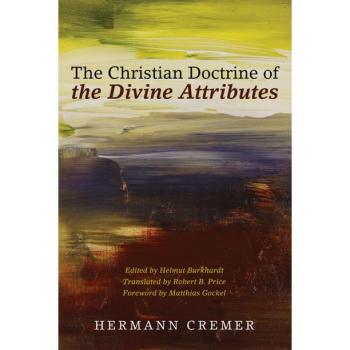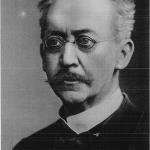How Denominations Can Survive (If They Should)
Roger E. Olson
Study Conference, November, 2015
The Sider Institute for Anabaptist, Pietist, and Wesleyan Studies
Messiah College
First Published: “The Future of Denominations in the Twenty-First Century,” Brethren in Christ History and Life (April, 2016). Re-published by permission.
In my first talk entitled “In Defense of Denominations” I explained my own interest in denominations and gave reasons why, in spite of criticisms and popular disinterest and even aversion, denominations can be valuable as good gifts from God—given our fallenness, the not-yetness of the Kingdom of God, and God’s gracious accommodations to us in view of both. Here I will offer several suggestions for denominational survival in a post-denominational era.
I must begin by stating several caveats. First, as a theologian, I am not particularly interested in the “nuts and bolts” issues of denominational survival. Among those I include prominently financial matters. I will leave it to others to suggest solutions to financial problems facing denominations. I suspect, however, that at least some of the financial challenges arise indirectly, if not directly, out of the underlying popular dissatisfactions with denominations that denominations need to address.
Second, as a theologian I do not think any denomination is sacrosanct; they are all human creations even if some are also divine gifts. I believe God has raised up some denominations to serve his kingdom purposes in the world, but I do not equate any denomination with the Kingdom of God. I feel no absolute loyalty to any denomination and I have observed how the loyalty some Christians feel toward their denominations have damaged them when their denominations have changed dramatically or merged or simply ceased to exist. So when I offer suggestions for denominational survival I do not think this is a Kingdom matter except perhaps insofar as a denomination still has a real purpose in God’s program. I am convinced that some do not and ought either to merge with another denomination or simply fold up their tent, close their doors and cease to exist.
Third, among my suggestions will not be any that have to do directly with “branding” or marketing. I will leave those practical issues to the experts. However, some of what I say may indirectly affect branding and marketing.
Finally, there is a difference between what a denomination ought to do to survive and what a denomination might do to survive. Occasionally, no doubt, as I lay out my prescriptions, you will discern the difference. “Ought” is biblical-theological-ethical territory; “might” is tactical-strategic territory. Sometimes the line between them is almost indistinct, but in my own mind they are separate kinds of prescriptions with the “ought” being weightier than the “might.”
Inevitably, my own experiences with denominations will enter into what I say about denominational survival. I will strive to keep them in perspective and not allow my personal experiences to influence my prescriptions too heavily. However, I don’t think it is ever possible to divorce one’s thoughts about such matters entirely from one’s experiences. So I want to lay all my cards on the table, so to speak, and let you decide to what extent my own suggestions for denominational survival are influenced by my own life story.
*Sidebar: The opinions expressed here are my own (or those of the guest writer); I do not speak for any other person, group or organization; nor do I imply that the opinions expressed here reflect those of any other person, group or organization unless I say so specifically. Before commenting read the entire post and the “Note to commenters” at its end.*
As I explained in my first talk I grew up in a tiny Pentecostal or “Full Gospel” denomination that preferred to call itself a “movement” or “fellowship.” Pentecostal scholar Wolfgang Vondey reminded me of this Pentecostal preference in his chapter entitled “The Denomination in Classical and Global Pentecostal Ecclesiology” in the book Denomination: Assessing an Ecclesiological Category to which I referred in my first talk.[1] Vondey argues, rightly, based on my own experiences with Pentecostalism, that Pentecostals historically have regarded the concept “denomination” as irreconcilable with the Pentecostal ethos which tends to be antithetical to institutionalism due to an eschatological emphasis.[2] However, there are numerous Pentecostal denominations and there is no escaping that word, at least from a sociological perspective.
The denomination of my childhood and youth, the denomination of my parents and many members of my extended families, struggled and still struggles to find its niche among Pentecostals and evangelicals generally. I first became aware of this struggle when my father served on the denomination’s national executive board. My uncle was the denomination’s president and many of its executives were close family friends. I was as firmly “plugged into” the denomination as any child and youth could be. I participated in its youth-oriented activities, contests, camps, etc., and attended its Bible college. Eventually I was ordained to the gospel ministry by the denomination—about the same time I was struggling with whether to stay in it or leave. Everything to do with my youthful denominational affiliation and activities was a natural progression. It was my “extended extended” family. In fact, it wasn’t until my teen years that I began to sort out who in the denomination was actually related to me by blood and who wasn’t.
My father was not very discreet with information about the denomination that he learned while serving on its national board. My uncle, the denomination’s president, was in our home often and also had somewhat “loose lips” about denominational issues. During my teen years I began to discern something I wasn’t supposed to think—that the denomination really had no clear reason for being and that it was born out of a schism the nature of which did not really reflect well on the founders. During those years, the 1960s, the denomination’s leaders attempted several mergers with other Pentecostal denominations. All failed because, according to my father and uncle, its leaders could not manage to work out mergers that would positively and permanently preserve their positions. Also, many of the rank-and-file ministers, whose votes at annual conventions counted most, were opposed to merger. Somehow the denomination had managed to create an ethos where loyalty to the denomination was extremely pronounced.
While I was attending an evangelical Baptist seminary I began to realize that the denomination I grew up in really had no distinctives and no clear reason for existing. It struggled under the shadow of larger, more dynamic Pentecostal denominations. Its differences from them were so slight, having to do with origin and minor polity issues, not doctrinal or ones of practice, that people and churches were constantly leaving for the greener pastures of the larger, more dynamic denominations “just like us”—except for being faster-growing and having more to offer.
I finally resigned from the denomination and joined several Baptist groups in succession—North American Baptist, American Baptist, Baptist General Conference and the Cooperative Baptist Fellowship. I found the same issues and problems among most of them that I grew up with in my family’s denomination. Most struggle to define themselves—inevitably having to magnify their perceived distinctiveness or change in rather dramatic ways to prove to themselves and perhaps the larger culture the validity of their reasons for continued existence. One Baptist denomination to which I belonged and for which I worked for fifteen years, existed primarily due to its Swedish heritage. But that Swedish-ness gradually dropped away. Then the denomination changed its branding rather dramatically in order, in my estimation, to continue to have a reason for existing. It is now called “WorldConverge” even though it is still clearly Baptist in doctrine and practice. I question whether the change in branding will work unless its changes its doctrines and practices, too. Can a denomination that calls itself “WorldConverge” continue to require baptism by immersion for church membership without seeming hypocritical to outsiders?
I have found myself metaphorically scratching my head vigorously over the problems of denominations. How many really have a clear reason for existing? How many would contribute more to the work of the Kingdom by merging with others? As I said in my first talk I do not regard denominationalism a scandal insofar as distinct denominations do not practice sectarianism by which I mean here thinking of themselves as the only true Christians. What I do regard as scandalous is the ethos of institutionalism that thrives in and drives many denominations. By that I mean their tendency to regard their continuing separate existence as more important than the contribution their resources could make to the work of God’s Kingdom if united with others’ resources.
The first suggestion I have, then, for denominations’ survival is for them to ask themselves whether they ought to survive. The option of merging with a similar denomination is a live one for many. It may not be for all. Most denominations seem to take it for granted that they ought to survive, but there is nothing self-evident about that oughtness. What are some reasons why a denomination or similar religious organization ought to dissolve or merge? Some reasons may lie in their origins. Earlier I mentioned the denomination I grew up in. It was born when the regional leaders of an older denomination simply decided to break away and start their own. No doubt they thought they had good reasons, but later generations may decide those reasons were insufficient to justify the schism. Insofar, then, as a denomination was born out of a schismatic spirit it may come to regret that and merge with its parent group or a similar one.
Another reason or set of reasons related to origins has to do with the founders’ motives. During the 1990s my uncle was on the national board of the Pentecostal Fellowship of North America, the PFNA, a cooperative umbrella group for cooperation and fellowship among Pentecostals. He and other leaders came to the realization, based on documentary evidence, that the founders of the PFNA had consciously excluded non-white Pentecostal groups. In what was called the “Memphis Miracle” by Christianity Today magazine the PFNA disbanded, dissolved, in order that a new Pentecostal “umbrella” organization might emerge led by both African-American and Caucasian Pentecostals.
Denominations and similar religious organizations should not simply take it for granted that they should forever exist independently. Reasons related to beginnings and future effectiveness for the Kingdom of God may very well point toward their demise as the right thing. For all the faults and flaws of his book The Social Sources of Denominationalism H. Richard Niebuhr was surely right that a “spirit of competitiveness” is more a secular characteristic of America than a spiritual hallmark of Christian values. And yet, as he pointed out, much of the proliferation and diversity of sects in America was and is a result of sheer American competitiveness.
Niebuhr was, of course, writing on the threshold of the ecumenical movement and his dream of the emergence of a united, universal Protestant “church of fellowship in love”[3] was perhaps romantic and unrealistic. However, his critique of denominational competitiveness in America can hardly be faulted. Here is one typical statement we should all take seriously:
Denominational Christianity, that is a Christianity which surrenders its leadership to the social forces of national and economic life, offers no hope to the divided world. Lacking an integrating ethics, lacking a universal appeal, it continues to follow the fortunes of the world, gaining petty victories in a war it has long lost. From it the world can expect none of the prophetic guidance it requires….[4]
In John 13:35 Jesus told his disciples and us that the world would know his disciples by their love for one another. Insofar as a denomination exists because of competition and/or a schismatic spirit of disunity or exclusion it is not living up to Jesus’s vision for his disciples. Such denominations ought to consider not surviving; or they ought to survive by merging with like-minded groups even if that requires some adjustments by all involved.
My first positive suggestion for denominational survival grows out of that negative suggestion: discover its legitimate raison d’être, reason for being, and build on it. By “build on it” I mean continually reform its public life and individual structure to fit with its reason for being. By “reason for being” here I don’t mean the common reasons that justify the existence of any church or denomination; I mean the distinctive reasons that truly justify this denomination’s existence as a separate entity and group from others of the same religion. When a denomination has no clear justification for its separate existence, people within it as well as outside of it will ask why it continues to exist. When a denomination’s life doesn’t fit with its reason for existence people within it as well as outside of it will ask why it doesn’t reform itself to fit its way of being with its reason for being. It should not be surprised when people wander away and stay away when it has no clear and distinct reason for existing or refuses to reform its life to fit its reason for existing.
Having a clear and distinct reason for being and continually reforming to fit it is not a guarantee of survival, let alone flourishing, but it certainly helps. Many a denomination has languished and become stagnant and even diminished due to lack of clear vision, mission and reform. I would prefer not to name examples of such, but I will point to an example of a denomination that seems to be flourishing because it knows why it exists and continually changes as needed in order to be ever consistent with its distinctive vision and mission. In fact, I will use it as a case study here several times—not because I think it’s a paragon of denominational virtue but because I think it is an example of how a denomination can survive as a denomination in a post-denominational age. It is the Evangelical Covenant Church (the ECC) formerly known as the Evangelical Covenant Church of America.
Sociologists of religion are sitting up and taking notice of the ECC because it has come out of obscurity into national notoriety for its unusual growth while maintaining its clear vision and mission as a distinctive denomination. Sure, it shares many features in common with other denominations, but has its own identity historically, spiritually and theologically. Founded in Sweden in the 1820s and re-founded in America a few decades later, the denomination now known as the ECC long languished in obscurity as one of many ethnic Pietist groups. During the 1980s the denomination decided to re-embrace its Lutheran and sacramental heritage while maintaining and even strengthening its Pietist ethos. The ECC has long required credentialed ministers to attend its North Park Theological Seminary for at least one year as a way of maintaining its distinctive traditions and identity. During the 1990s and beyond the ECC decided to add “missional” to its “Pietist” identity and encourage and support creative church plants and endeavors. While maintaining its distinctive ethos as progressively evangelical the denomination has broken out of its ethnic and regional limitations.
One of the ten largest congregations in the U.S. is the relatively new ECC-related LifeChurch of Oklahoma City—a far cry from the historically typical Upper Midwestern small Covenant congregation attended mostly by descendants of Swedish immigrants. One of the smallest congregations in the U.S. with no dreams of becoming a mega-church is also Covenant-related Vox Veniae in Austin, Texas which meets in a converted nightclub in one of its city’s poorest and most crime-ridden neighborhoods. The outside of the cement block building which also serves as a community center is covered with colorful murals painted by neighborhood artists. The church prides itself on being a “rule-breaking” church. Inside is a large lending library next to a bar open to the worship space that serves only local brews. This is a church for hipsters whereas LifeChurch, both belonging to the same denomination, is a church for upwardly mobile millennials becoming middle class families. Interestingly, both thrive in geographical and cultural contexts far outside the historical settings of the original ECC.
The ECC has jumped in recent decades from about a hundred and twenty thousand attendees to almost two hundred thousand and from six hundred churches in the U.S. to almost nine hundred. And yet it has maintained its distinctive ethos as an orthodox Protestant denomination emphasizing spiritual experience, including conversion, and mission, including especially church planting in unusual locales and with non-traditional congregations.
I believe the ECC’s secret of success lies in its discovering the essentials of its historic ethos, separating them from secondary and outward non-essentials, and adapting itself to new generations and social environments. It is a welcoming denomination with a clear spiritual and theological center and relatively loose boundaries—especially with regard to styles of congregational life and worship. It shed its ethnic limitations without shedding its Pietist spirituality and mission-mindedness. In a time when people are saying denominations are “old school” and destined to die away, the ECC is finding new ways to be denomination—so much that many people are fooled into thinking it’s not a denomination. Its secret of survival and success lies in its decision to become missional in every way consistent with its spiritual-theological identity; it knows what it is spiritually and theologically without being institutionally rigid and closed to proper adaptation. It finds a way to walk that fine line between adaptation and accommodation.
It seems that today, anyway, younger generation Christians are examining denominations to detect their commitment to the mission of God. Inwardly focused denominations that are institutionally driven with rigid rules and structures without clear transcendent reasons are viewed with great suspicion if not disdain. The term “denomination” is coming to be almost synonymous with “non-missional religious organization.” Millennials especially tend to run from religious organizations and churches that look to them like museums. But they are not averse to flexible organizations with clear vision and mission.
All of this means that in order to survive and thrive, denominations need to examine themselves very critically. First, they need to decide if they have a clear reason for being that transcends their history. What may have seemed to be a very good reason for being separate a century ago may not be a good reason today. Second, they need to open up to new ways of embodying and expressing that reason for being that are culturally relevant without sheer accommodation to “demands of the market.”
My second positive suggestion for denominational survival is really an extension of the first—drawing out a specific implication implied in it. A denomination that wants to survive and thrive must examine itself with regard to traditions and become willing to adapt and change. Assuming that it has a clear reason for being that transcends history and tradition, it must ask itself what traditions it can shed or adapt in order to become welcoming and missional—two key components of survival to say nothing of growth. This self-examination must be fine grained and comprehensive. Nothing except its key reason for being, its spiritual-theological ethos, what it uniquely contributes to the cause of the Kingdom of God and the people of God, can be exempted from critical examination and reform.
Bear with me as I illustrate what I mean by referring again to my own spiritual-theological heritage—Pentecostalism. Pentecostal scholars and scholars of Pentecostalism (they are not necessarily the same) have long wrestled with Pentecostalism’s distinctive ethos and identity. What stands out as most obviously distinctive about it as a movement is its emphasis on the present relevance to the mission of God and the progress of God’s Kingdom through the supernatural gifts of the Holy Spirit and especially speaking in tongues, prophecy and healing. However, the one single doctrinal distinctive was traditionally the belief, even doctrine, that speaking in tongues is the “initial, physical evidence” of the second, blessing subsequent to conversion, called the “baptism” or “infilling” of the Holy Spirit. For decades this doctrine was taught but was clearly secondary to the movement’s main attraction and distinctive emphasis—the experience of the infilling of the Holy Spirit subsequent to conversion.
Classical Pentecostal denominations began to languish when they began to hold ever more tightly to and insist on the “evidence” doctrine as their primary “marker.” The rise of the charismatic movement and the Jesus People Movement of the 1960s and 1970s challenged the doctrine as did the Third Wave Movement most notably exemplified by the Vineyard Fellowship of Churches. These neo-Pentecostal movements and groups rejected classical Pentecostalism’s key doctrine while embracing its experiential ethos. Pentecostal denominations were faced with decisions about which to hold onto most tightly—the Pentecostal experiential ethos or the doctrine. Most, of course, determined to hold firmly to both, but during the 1990s and first decade of the twenty-first century that has become increasingly difficult as many people both within and outside of classical Pentecostal denominations questioned the doctrine while embracing the ethos. Many Pentecostal churches have chosen to downplay the doctrine while maintaining the ethos. Denominational leaders are caught between a rock and a hard place. As someone who knows Pentecostalism very well I see that the majority of classical Pentecostal leaders know but have trouble articulating the reality that the distinctive doctrine is dying away on the grassroots level and even standing in the way of the flourishing of the ethos. The uneasy solution so far, in most Pentecostal denominations, is to relegate the doctrine to the status of what some call a “shelf doctrine,” paying lip service to it when it comes up, while putting forward the experiential ethos as the “real” inner driving force of the Pentecostal form of life. I think this manifests a traditionalist lack of nerve; clearly the doctrine’s time has passed and it is time to let it go. It has never been the true attraction or contribution of Pentecostalism. It was probably simply early Pentecostal leaders’ way of distinguishing their movement from the movements they grew out of and away from—the Holiness and Healing movements of the mid- to late nineteenth centuries.
Many denominations and movements have what some label “shelf doctrines”—historical, traditional beliefs that once served some purpose but have largely become otiose, non-functioning, even a hindrance to growth and vitality. Denominations that are willing to let go of these beliefs and practices that, to reasonable visitors and potential converts, are simply obscure, arcane traditions are more likely to survive and flourish than those that keep taking them off the shelf, dusting them off and using them to justify their separate existence.
Tradition is good, but traditionalism is bad. Church historian Jaroslav Pelikan said it most eloquently: “Tradition is the living faith of the dead; traditionalism is the dead faith of the living.” Especially younger people today are highly suspicious of traditionalism; they tend to embrace tradition as the living faith of the dead while running away from traditionalism as the dead faith of the living. Insofar as a denomination holds fast to its traditions especially younger people today want to know why and want to see their relevance to the mission of God.
Like numerous other critical thinking young Pentecostals I left the movement mainly because its leaders could not satisfactorily explain the doctrine I was being required to “sign” even if with my fingers crossed behind my back. That doctrine was the one I mentioned—speaking in tongues as the “initial, physical evidence” of the baptism of the Holy Spirit. My home church had become involved with the charismatic movement and the Jesus People Movement while I was in high school and college. These missional moves helped the church identify its core identity and ethos—life transforming experience of God and power for spiritual living through practice of the gifts of the Holy Spirit. But the new converts flooding into the church simply laughed when they heard about the doctrine that without speaking in tongues a person cannot be truly Spirit-filled. As a student at a classical Pentecostal Bible college I dared to challenge the doctrine. I asked my uncle, president of the denomination, if he thought Billy Graham was Spirit-filled. He said yes and admitted that he is “the exception” to the belief expressed in the denomination’s doctrine about speaking in tongues. I asked him if I could teach there are exceptions should I accept ordination in the denomination and someday perhaps teach in the Bible college. He said no. One of my professors invited the leading pastor-theologian of the denomination into class to answer my persistent question about the biblical proof of the doctrine. He glared at me and said “If we didn’t believe it we wouldn’t be Pentecostals, now would we?” For me that was an “Aha!” moment that put my feel on the path toward having to leave the denomination. It simply was not a good enough reason to make that doctrine a required belief for affiliation.
Classical Pentecostal denominations that have held firmly to that sectarian dogma have become stagnant except where individual churches, led by pastors who choose to ignore it, have separated the Pentecostal ethos from the dogma and adapted to a more missional and ecumenical spirit. Sociologists of religion love to tout the growth of Pentecostalism especially in the Global South but what they rarely notice or mention is that most of that growth is without the classical Pentecostal distinctive doctrine; the Pentecostal ethos is flourishing in ever new forms, relevant to home cultures, without the traditional doctrinal sine qua non of “speaking in tongues” as necessary “evidence” of being Spirit-filled.
My point is that every denomination needs to examine itself for traditionalism. Traditionalism is deadening. A denomination needs to determine what parts of its tradition are truly alive and well and separate them from those parts that have, for whatever reason, become otiose and contribute nothing to the mission of God and the progress of the Kingdom of God in the world and that possibly even hold it back from progress by making it difficult to adapt to new generations and cultural contexts.
My third positive suggestion for denominational survival may seem on the surface to conflict with my second suggestion, but bear with me as I explain. The suggestion is to avoid riding every wave of spiritual-theological fashion at the expense of firm grounding in living tradition. Many people, especially young people, tend to equate vitality with faddishness. Spiritual-theological fashions come and go—now more quickly than ever. It’s nearly impossible to keep up with them. The “word on the street” is that new is better and “old school” is automatically bad.
Think with me of the so-called “worship wars.” Styles in church music come and go so fast it makes one’s head spin. Churches that over adjust, jerking from one fashion to another, without regard to any theology of worship or worship-tradition simply cannot hope to keep up without becoming shallow and ultimately irrelevant.
I happen to be “old school” when it comes to Christian music. I’m not talking about the so-called “contemporary Christian music” played on CCM-formatted Christian radio stations. I’m talking about the music choirs and congregations sing in worship. Most of the traditional hymns have some theology in them; they “speak” the language of Zion, expressing the biblical narrative and theological tradition in lyrics set to music. Much of the contemporary “praise and worship” songs were written to be performed and have extremely shallow, repetitive lyrics set to music most people cannot sing. Too many ministers of music, worship leaders, are young men and women who really want to be performers. They often have no gift for leading congregational worship. This may appeal to a decade-generation for a while, but over time it becomes tiresome and breeds biblical and doctrinal ignorance and indifference.
However, I have no problem setting good, theologically profound lyrics to contemporary tunes. Fernando Ortega has done a wonderful job of brushing off old hymns and giving them contemporary arrangements that are appealing to younger people. The hymn-writing team of Getty and Townend have produced numerous new hymns with great lyrics of theological depth and profundity. These and other contemporary worship artists have demonstrated that it is possible be both contemporary and deep. But the fad is still shallow “praise and worship” choruses performed by worship bands with congregations listening rather than really worshiping in song. I believe churches that ride this fad may attract many millennials but they are likely to lose them as the millennials mature and go in search of more meaningful worship in which they can participate.
Another fad I resist is “narrative preaching.” Gone are the alliterative three point sermons of yesteryear; “in” are sermons without points that appeal to the story-lover in all of us. But, again, like so-called “contemporary worship,” this is a fad, a fashion, destined to die as people desire deeper theological answers to life’s ultimate questions.
My point is that the strong temptation to adjust endlessly to religious fashions can doom a church or denomination to irrelevance. How well I remember, as I’m sure some of you do, the 1970s when numerous evangelical churches flocked to the fads of “bussing ministries” and “Basic Youth Conflicts” seminars. Those churches may have seemed relevant and hip at the time, but in many cases they lacked the staying power that tradition can provide.
Recently I attended a seminary chapel service celebrating the career of an “old school preacher” at the time of his retirement. His preaching was old school, to be sure, but everyone agreed on one thing—he knew who he was. A few weeks later the same chapel congregation was treated to an eclectic service invented by a worship class made up mostly of hipster millennials. It blended imitation high church liturgical style with revival songs to hip, new tunes, with soulful narrative peaching and some secular music and poetry. The impression left was that nobody who designed the worship experience knew who they were; it was a confusing mess even as it appealed to young millennials bored-with-tradition and desperately seeking authenticity but looking in all the wrong places.
The key word in this third suggestion is “authenticity.” What millennials are telling me they want in a church is authenticity. They want to attend a church that knows who and what it is and why—not mired in traditionalism or institutionalism but passionate about its traditions and finding authentic ways to bring them to new life.
I think one of the biggest challenges facing denominations today is achieving genuine authenticity and I suspect that arrives only when a denomination decides who it is and lives that out with passion for the sake of God’s mission in the world. Being stuck in the past for tradition’s sake alone and being too eager to change for the sake of appearing contemporary alone are both authenticity killers.
Let me offer an example. A denomination with which I am very familiar is the Baptist General Conference formerly known as the Swedish Baptist Conference and now known as WorldConverge. I was a member of it for fifteen years but I knew about it even as a child when I attended Vacation Bible School at a BGC church in my neighborhood. My wife grew up in the BGC and eventually I taught theology in its sole college and seminary. I loved the BGC; it was and, I trust, still is a fine denomination. After shedding its Swedish identity in the 1960s the denomination struggled to find its niche among evangelical and Baptist denominations. It overcame traditionalism before it really found its new identity. Some of its pastors and theologians are now in the process of retrieving its Pietist heritage and rediscovering that as its identity—a new-old Pietist ethos marked by irenic spirituality with an evangelical-orthodox core. At the same time the denomination’s leaders were and are turning to what some regard as a fairly radical new direction—seeking a new identity marked by inclusiveness and broad participation in the multicultural and international mission of God. Thus the change of the denomination’s name to WorldConverge.
While I have no doubts about the good intentions of those who brought about the new name and who are forging the denomination’s new identity I have to admit that I consider it a mistake. While cutting almost entirely loose from history and tradition may appeal to some fashion-minded millennials it is a recipe for irrelevance. “WorldConverge” communicates nothing to me about the denomination’s identity or ethos except that it wants to be hip among the post-denominational crowd. But perceptive eyes will see right through that; it is still a denomination with all the baggage that carries and the new name seems just a cover. The denomination still requires members to be baptized by immersion upon confession of faith. It is still Baptist and has not entirely shed its Swedish flavor. Its rebranding can easily be perceived as inauthentic.
A denomination that is in the long, sometimes painful process of rebranding itself authentically is the Community of Christ, formerly known as the Reorganized Church of Jesus Christ of the Latter Day Saints. When I was growing up this denomination, some would call it a cult or sect, had a church immediately behind our house. Our backyard was separated from its parking lot only by an alley. We thought it was Mormon—a common confusion the denomination struggled against. It did and still does share some things with Mormons, but it has no connections with the Salt Lake City Church of Jesus Christ of the Latter Day Saints that is commonly known as the Mormon Church. A few years ago the Reorganized Church of Jesus Christ of the Latter Day Saints realized it was changing; it was shedding those historical features that marked it as a heterodox sect or cult on the far fringes of Christianity and adopting more orthodox, if not evangelical, beliefs. In a series of decisions made by its leaders the denomination strengthened its headquarters in Independence, Missouri with a “temple” commemorating the pioneer followers of Joseph Smith who chose not to follow Brigham Young to Utah. It reaffirmed its belief that the Book of Mormon is inspiring even as it denied that it is inspired in the same way the Holy Bible is inspired. It affirmed orthodox Christian doctrines of the unique deity of Jesus Christ and the Trinity. Eventually its identity changed sufficiently, but without discarding everything of its history and heritage, that it felt a change of name was authentic. It chose The Community of Christ. Today it is seeking affiliation with the National Council of Churches and its application will almost certainly be approved. Its name change came on the heels of a long and very well thought-out examination of its identity in light of its heritage and trajectory. The name change reflected very real adjustments in its ethos and identity without jettisoning its tradition. It is anything but faddish or a slave to fashion even as it continues to seek out new ways to be relevant and contemporary.
Sometimes we can learn from those we consider “the other.” To be sure, the Community of Christ is not yet, if it ever will be, an evangelical Christian denomination—at least as that is understood by, for example, the National Association of Evangelicals. But its process of seeking to update its identity and not only its image is a model of authentic self-examination and reform. Many evangelical denominations could learn much from it.
In sum, then, denominational survival, even flourishing, depends on careful, thoughtful self-examination for authenticity together with relevance, tradition without traditionalism, flexibility without faddishness. In some cases it may require radical change that a new name alone cannot bring about but that may result in a new name. That radical change may be painful denial of some distinctive “shelf doctrine” or traditional practice that no longer fits the denomination’s ethos and mission and/or does not contribute to the progress of the Kingdom of God. In some cases survival as separate existence may not be good; some denominations that have lost their real reason for being ought to merge with others or even cease to exist.
*Note to commenters: This blog is not a discussion board; please respond with a question or comment solely to me. If you do not share my evangelical Christian perspective (very broadly defined), feel free to ask a question for clarification, but know that this is not a space for debating incommensurate perspectives/worldviews. In any case, know that there is no guarantee that your question or comment will be posted by the moderator or answered by the writer. If you hope for your question or comment to appear here and be answered or responded to, make sure it is civil, respectful, and “on topic.” Do not comment if you have not read the entire post and do not misrepresent what it says. Keep any comment (including questions) to minimal length; do not post essays, sermons or testimonies here. Do not post links to internet sites here. This is a space for expressions of the blogger’s (or guest writers’) opinions and constructive dialogue among evangelical Christians (very broadly defined).
[1] Denomination: Assessing an Ecclesiological Category, eds., Paul M. Collins and Barry Ensign-George (London and New York: T&T Clark, 2011)
[2] Ibid., 102-203.
[3] H. Richard Niebuhr, The Social Sources of Denominationalism (New York: Meridian Books, 1958), 282.
[4] Ibid., 275.
















